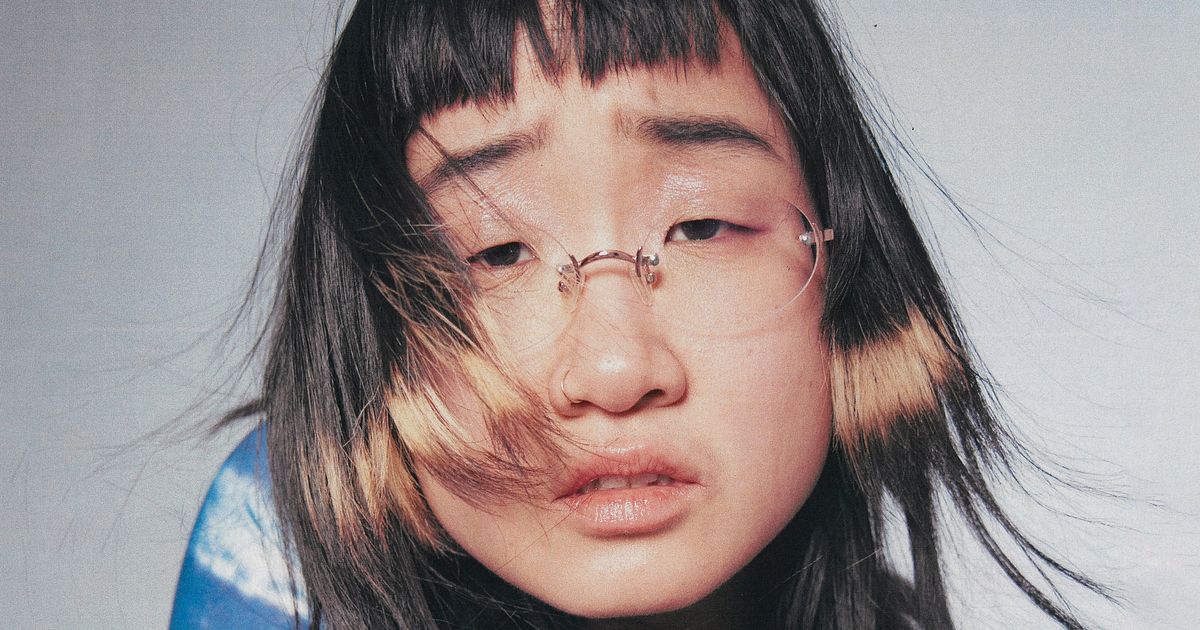
Yaeji Lets Loose
In Yaeji’s home, everything has its place. We’ve arrived at her Brooklyn pad, a pretty-big-for–New York two-bedroom apartment, where she’s cutting up kimchee with pink scissors (labeled FOR FOOD USE ONLY) to go with the congee we bought for lunch. We spent the morning attempting to tire out her toy poodle, Jiji, a pandemic puppy she got in Korea, but succeeded only in making ourselves hungry. Jiji is her little princess, a spoiled international rich girl, and the main reason you might not see her at the Bushwick clubs where Kathy Yaeji Lee from Flushing became mononymously known as Yaeji, the musician beloved for her introspective dance music that sounds like the moment when the molly is about to hit. (She’s pretty straight edge, though.) Motherhood at 29 years old and a liberatory new album allow her to indulge her inner homebody and call it a night: Sorry! Dog!
Much like Yaeji herself, who is dressed with an eye toward stylish comfort — fur-lined black Crocs, jeans, a hiking jacket — objects with radioactive levels of cuteness are everywhere around us: A large beige sectional that looks like a row of wrinkled ladyfingers surrounds a yellow puddle-shaped coffee table in the living room, where there is also a red mushroom lamp; a Totoro noren hangs at the threshold of her bedroom, and plushies line the windowsill. Yaeji comes from a family of collectors and believes in the mysticism of objects. She carries a coin wallet in her backpack that holds a miniature owl and a turtle made of seashells wearing a pink hat. She keeps it with her because her grandfather gave it to her as a safety charm. “It literally functions as nothing, but I carry it around with me,” she says. “I have a hard time letting go.”
“There it is!” she says, pointing to the corner where a sledgehammer rests; the mouth and eyes that are normally on it have been wiped clean for the moment. “I gave birth to it.” The hammer is surprisingly heavy (it’s solid aluminum); she had it fabricated for With a Hammer, her first full-length album, out next month (there’s another mallet with a translucent pink handle at her studio). It was a way to focus her intentions as a musician. Yaeji has been working for years in New York, first as a DJ before breaking out with hypnotic, dancy jams that slide between Korean and English. She released two critically acclaimed EPs and a full-length mixtape, What We Drew 우리가 그려왔던, in 2020 before she felt she could announce herself as an artist with a complete vision. “Why are we the ones to always apologize?” she asks on a new track, “Fever.” “Now I’ll just say everything I’ve wanted to say.” The lyrical storminess accompanies synth soundscapes that are familiar but have gotten bigger, warmer, and more atmospheric. She appears on the album cover, looking askance, with the mischievously grinning Hammer draped across her shoulders like she’s a WWE fighter. Hammer is a manifestation of her anger transmuted into something mythical, adorable, and powerful. Like Sailor Moon with her brooch, when Yaeji wields Hammer she is transformed into an avatar of her own creation.

Photo: Emily Lipson
Animation has always been a source of comfort for Yaeji. During her time of isolation, she returned to the magical-girl anime of her youth: Cardcaptor Sakura, Sailor Moon, Phantom Thief Jeanne. “Real life is already enough for me,” she says, laughing. “I can’t watch real humans. That’s me being honest.” She doesn’t like anything too gory or too sad or too scary. What she loves are slice-of-life shows like Nichijou — literally Everyday Life — which may be one of the sliciest out there. The heightened aesthetic of anime gives absurd, gargantuan dimensions to the most mundane incidents, such as tripping into someone on the street or dropping a sausage on the floor. On her laptop, Yaeji pulls up one of her favorite scenes from Nichijou, in which a character named Yuko orders coffee for the first time. The emotions are huge, cosmic. The stakes are life or death! Much as an adolescent heart might experience them.
The gentle rhythms of this style of anime also allowed her to be kinder to herself. “It made me learn anger is something you have when you believe in yourself, because you feel like you’ve been wronged,” she says. “So that’s the power of anger in this album — it’s actually not about smashing things.” One of the most pivotal songs for her on With a Hammer is “Passed Me By,” in which she sings a line in Korean: 못 알아볼 뻔했어 (“I almost didn’t recognize you”). She says the line is directed toward her younger self. “She’s always been looking at me, but I was always averting my gaze and rejecting her existence,” she explains. “And this is the moment I lock eyes with her, and I’m like, You’re there. I see you.”
Thank you for subscribing and supporting our journalism. If you prefer to read in print, you can also find this article in the March 13, 2023, issue of New York Magazine.
Want more stories like this one? Subscribe now to support our journalism and get unlimited access to our coverage. If you prefer to read in print, you can also find this article in the March 13, 2023, issue of New York Magazine.































![iFi's GO Bar Kensei Dongle DAC Supports K2HD Technology With Some Samurai Swagger [Updated] iFi's GO Bar Kensei Dongle DAC Supports K2HD Technology With Some Samurai Swagger [Updated]](https://i0.wp.com/cdn.ecoustics.com/db0/wblob/17BA35E873D594/33FF/45A11/QTXOLJR4xDKSNMMk2WlTgjaIlvSgcYpeU1xJzUwIoYs/ifi-go-bar-kensei.jpg?w=768&ssl=1)
























